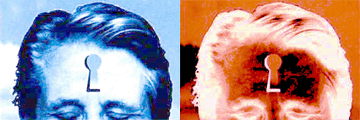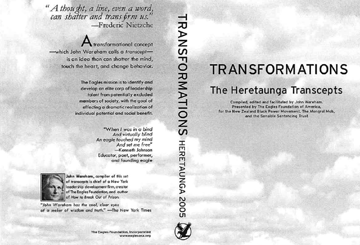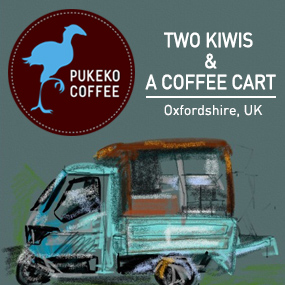Self, Race, Drugs & Justice in New Zealand
In the Hawke’s Bay the heavy early morning dew – ‘Heretaunga haukunui’ the Maori call it – carries the chill signal of approaching autumn. Already the seasons turn. It only seemed to be yesterday that we were getting ready for Christmas. Family, who came home to the kainga at Waiohiki for the break, have now gone back to their own places to face the busy year ahead. Gone too are the great swarms of teenagers, cuzzies and friends, moving noisily in their respective cohorts, up and down the pa road, up and down, up and down (“Uncle, we’re bored!”), all through the long, hot, summer holiday, nights. We didn’t begrudge their wanderings a jot. We had about 19 people sleeping at home over the festive period. It was great to have them all come, and great to see them all go. And there were other happy times.

In late January my latest grandson – Rua O’Reilly – was born. You might think Rua is a Maori name, but in this case it’s Gaelic, derived from his mom’s granddad, Rua McKenzie. I’ll have you know that the name Rua runs way back in my family too. Giolla Iosa Rua O’Reilly is credited in the family prayers with having founded the Franciscan Abbey at Cavan around the year 1300. In any case the period of good times and notional holidays was too damn short. The inevitable tasks associated with meaningful social action can only be put off for so long, and ‘so long’ is short on patience! We seem to have hit 2005 at warp speed already – and I’m loving it!

The summer break has been expensive to our methamphetamine project. We had a few dramas with people spinning out, the inevitable consequence of use. P can really make people paranoid, grumpy and very unpleasant to deal with when they’re coming down, or when they’re in their post binge depression. We’ve lost a bit of ground. Some people who had foresworn P are back on the stuff. Some of our key leaders have been ‘got at’ and have had subtle (and sometimes not so subtle) pressure put on them to reduce their endorsement of a P free community. Some are less prepared to take a stand than they were late last year. It’s frustrating, but doing nothing is not an option. This is one substance that we have to be prepared to be relentless, boringly relentless, in building community resilience.
A crew of us traveled to Waitangi for our national day commemorations. If you’ve never been to Waitangi on Waitangi Day then get your arse there next year. It is unique, a unique day, a unique place, a chance to step into the psyche of the nation and literally walk around it. It’s different every time. I must say that 2005 was one of the more enjoyable years. The changes were quirky. It was interesting to see Hone Harawira beginning to slide himself into the glove of a mainstream political persona and his siblings trying their best to be reserved and diplomatic. The energy, the youth and the debates all happened down at Te Tii, the so called ‘bottom marae’. This marae lives, in that it has a resident hapu, Ngati Rahiri, whereas the ‘top’ marae, where the Treaty House, the Whare Runanga and the navy flagstaff all sit, is more or less symbolic. In any case the real dialogue tended to happen down at Te Tii.
The new crew on site were definitely the Maori Party but Destiny also made their presence felt. The other parties, bar Labour, all featured too. There were young people and a good feeling everywhere. Over the other side of the bridge, the demographics of power were evident as a much older cluster of Labour Party stalwarts and key Maori deal brokers holed up at the Copthorne Hotel.

We have hosted our first international visitor generated from this nzedge ‘nga kupu aroha’ blog. She is a Canadian woman, Johanne Robitaille. Johanne works with the indigenous nations within Quebec, using a process we’d describe as ‘restorative justice’. She has a very soft and peaceful approach and I happily took a day off to wander around with Johanne, introducing her to our whanau, showing her our various projects and swapping ideas and approaches. Viva nzedge!
At this time in an election year the key lobby groups lay the platform for their various demands on the Government. The ‘gang’ word has, in the past, provided rich pickings for the Police Association in terms of leveraging increased numbers and extended powers. True to form we have been presented with a recent Police Association announcement about the alleged worsening situation around P syndicates penetrating our borders, the continued rise of organised crime and the high potential for street gang warfare. Those of us dealing with the impact of P readily acknowledge that the Police Association gave us very early warning about the incoming social tsunami of P, but their confusing position as a union and aggressive advocate for their members meant that the ‘boy who cried wolf’ factor came into play and many people saw the ‘warning’ as another hyped up ploy. This time the predictions of trouble ahead were accompanied by a call for a commission of enquiry into organized crime and gangs.
![]()
n the first instance I don’t know what I don’t know, and if front-line officers engaged in surveillance are saying things are so, then a reasonable person is compelled to listen. For my part we seem to be stuck in a less than useful paradigm where we repeatedly present a negative prophecy (often self fulfilling at that) instead of a positive prophecy. We seem to have blithely accepted the projected 15% annual rate of climb in the prison population even at a time when the overall rate of crime is dropping. One fears the projection is set to become a target. A time for reflection on what we’re doing is called for, so I accept the Police Association’s proposition for some form of enquiry into organized crime and gangs and the whole shebang.
A bit of trouble with young gang prospects, the ‘Dog Soldiers’ broke out around Hawke’s Bay over Christmas. After a call from Thomas Heremia, a community development worker heading the Maraenui Urban Renewal project I had a think about the situation and wrote a paper. In brief though these are my conclusions:
When it comes to dealing with youth gangs in New Zealand there is little agreement as to what works. We lack evidence based research and we better start building in research and independent evaluation into our initiatives. Many people think of the NZ gang as the 1970’s stereotype of young Hemi and Hori down the corner dressed in their leathers. But the demography of gangs has changed over the last generation. Besides the traditional indigenous groups, gangs have become inter-generational and multi-national.
But at a level down from the ‘big picture’ what we are actually dealing with seems to be a recurring problem with a number of whanau who have complex and severe needs.
These whanau are difficult to reach and to establish an effective rapport with. They miss out on many of the social and economic services and supports that are available to them.

In Hawke’s Bay there seems to be goodwill amongst a wide range of groups and agencies dealing with or affected by the issue of youth gangs, whanau development and community development. There is potential for a broad initiative across Hawke’s Bay utilizing the existing network of public service intersectoral fora. The Government’s family based policies seem to hold most promise as a programme platform and so it follows that the Ministry of Social Development is the natural lead agency.
Hot on the heels of the local youth gang issue blowing up came a call from Sir Russell Pettigrew who invited me to meet with him and Garth Mc Vicar from the Sensible Sentencing Trust. Despite the vast ground that separated us in terms of ‘how’, we seemed to more closely share a vision of a better and more inclusive New Zealand. Sir Russell has supported my work before. At our meeting he recounted a story of how he’d been rung by the then Speaker, Sir Richard Harrison who had been asked by Prime Minister Muldoon to see if anything could be done to help my work trust along. Harrison delegated the job to Pettigrew and it fell to Sir Russell to come around and meet with me and the crew. Before leaving home he told his wife where he was going and to ring the Police if he wasn’t back in an hour. Having arrived at our place he then got so involved in discussion that the best part of a couple of hours had drifted past and he had to excuse himself to let all know he was alright.
Sir Russell and Garth McVicar have agreed to participate in the “Transformational Symposium’ that we are running with John Wareham and the Eagles Foundation USA. There will be some 40 participants in the symposium, more or less 15 leaders and up and coming leaders from the two major gangs and a number of community participants.

The Symposium will be led and facilitated by John Wareham, a New Zealand born, New York headquartered, leadership psychologist. Wareham is confidante and counselor to top Fortune 200 chiefs. John has authored some ten books, on the human side of achievement, including 13-language reference classic, ‘Anatomy of Great Executive’. His two most recent books are ‘How to Break Out of Prison’, a life-changer, and ‘Chancey On Top’, a critically acclaimed novel, the opening of which is set in New Zealand.
John Wareham says that leadership is about more than getting things done. He promotes developing people along the way; people who can take over and leverage achievement for everyone. This then is a capacity building initiative.
John Wareham is founder and chief executive of The Eagles Foundation of America, a non-profit dedicated to transforming the lives of those in prison and on the fringes of society. The Eagles mission is to identify and develop an elite corp of leadership talent from potentially excluded members of society, with a goal of effecting a dramatic realisation of individual and social benefit. John will be accompanied by Joseph Roberts, president of the Eagles Foundation. Mr. Roberts is a reconstructed former felon, and graduate of Sarah Lawrence College, the prestigious Ivy League college.

The programme is scheduled to take place at Te Taiwhenua o Heretaunga, Hastings, over the period 4-6 March 2005. There will be pre-work for the event. This includes completing a number of readings, an eclectic set of excerpts from Plato, Aristotle, Shakespeare, Malcolm X and Martin Luther King among others.
A tikanga, a set of rules, will be applied to the programme. These will include:
| • | Rahui: we agree that we will not indulge in alcohol or illicit drugs from the start of the project on the Friday until the conclusion on Sunday |
| • | Commitment: we agree to complete our readings homework, and to stick to the programme timetable, no taking off or drifting in and out; each crew responsible for their own troops |
| • | Kaupapa: we agree that this project seeks personal insight towards personal change so we can effect a better future for ourselves, our families and our country. The kaupapa is bigger than any of us or our interpersonal grudges |
| • | Integrity: we agree to be open and honest with each other and with ourselves |
I have been moving around the country talking to the leadership of the participating groups.I’m hopeful of a really positive outcome for the Symposium, so, whoever you are and wherever you are come March 4th, say a little karakia for us will you. Arohanui. Denis. |
|





















